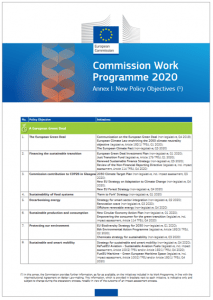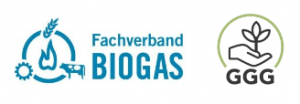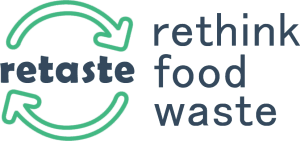|
 Yesterday the European Commission has published the Commission Work Programme for 2020. Vice-President Maroš Šefčovič presented it this morning at the plenary session of the European Parliament. The Work Programme includes new proposals to be put forward in 2020, as well as the proposals to be revised, the pending priority proposals and the withdrawn proposals. Yesterday the European Commission has published the Commission Work Programme for 2020. Vice-President Maroš Šefčovič presented it this morning at the plenary session of the European Parliament. The Work Programme includes new proposals to be put forward in 2020, as well as the proposals to be revised, the pending priority proposals and the withdrawn proposals.
Ursula von der Leyen, President of the European Commission, said: 'This Commission is committed to tackle our generational challenges such as climate change, digitisation and migration. We are committed to deliver on the European Green Deal and to improve chances for European citizens and businesses in the digital transformation. This Work Programme will help building a Union that strives for more.'
For the bio-waste sector the new policy objectives related to the European Green Deal are of upmost importance. The European Green Deal was published in December 2019 (see ECN E_Bulletin 13_2019) and the European Parliament has adopted a Resolution on the European Green Deal on 15 January 2020.
The Commission will propose a European climate law to enshrine the 2050 carbon neutrality objective into legislation. In addition, the Commission will present initiatives to tackle the loss of biodiversity and – through a ‘Farm to Fork' Strategy – support farmers in providing high quality, affordable and safe food in a more sustainable way. In relation to the objective ‘Sustainable production and consumption’ the Commission will publish a New Circular Economy Action Plan (see ECN’s feedback on the Roadmap below).
The Commission Work Programme 2020 can be accessed here.
The factsheet on the New Policy Objectives can be downloaded here.

European Compost Network (ECN)
Feedback on the Roadmap on the new Circular Economy Action Plan
The European Compost Network (ECN) welcomes the initiative of the European Commission to adopt a new Circular Economy Action Plan with the objective to boost the circular economy model in the EU and abroad.
ECN welcomes the planning of new measures to establish a functioning and competitive integrated market for secondary raw materials and recommends that circularity of biological loops is fully addressed by
- Providing legal certainty to downstream operators;
- Enforcing the development of high-quality separate collection schemes of biowaste and other recyclables;
- Promoting the use of organic soil improving products over mineral fertilizers.
ECN strongly advocates in favour of closing organic cycles for biological materials. There is the need to develop a comprehensive strategy to build up organic matter in soils (See ECN’s manifesto and follow ECN’s S.O.S. Soil initiative ‘Save organics in Soil’). Compost and digestate have optimal fertilizing and soil improving properties. They are organic fertilising products which supply nutrients to the plants and build up soil organic matter in soils, once applied regularly. Organic matter will help maintaining and restoring soil quality, structure and its much-needed water retention capacity. This means that soils will not dry out quickly in summer months, when water is scarce but also that the likelihood of flooding in winter is reduced.
ECN’s feedback on the Roadmap on the New Circular Economy Action Plan can be accessed here.

Announcements
4-5 March 2020, Brussels (BE)
ECN Joint Task Group Meeting on Quality Assurance and Fertilisers
Under the title ‘Benchmarking national quality assurance schemes for compost and digestate Fertiliser Product Regulation and the standardisation process: ECN’s approach and critical aspects’ ECN is organising a 2-days workshop for its members on 4-5 March 2020 in Brussels.
On the 4th of March we will focus on benchmarking national quality assurance schemes for compost and digestate. The objective of the benchmark is not to qualify schemes as ‘good’ or ‘less good’, but rather to learn from experiences in various countries and schemes. A number of aspects of quality assurance schemes will be covered, e.g. governance, compost & digestate quality requirements, role of auditors, technical issues, position of stakeholders, etc..
On 5th of March ECN will have a dedicated TG Fertiliser meeting focusing on the standardisation process of the EU Fertilising Product Regulation. The day will start with an introduction to the standardisation process in CEN and national committees. The discussion will then focus on a number of key aspects in the standardisation process (analytical methods and the conformity assessment procedure).
ECN members, who are interested to join the workshop and have not yet signed in for the specific Task Groups, please contact the ECN Office: info@compostnetwork.info

17-19 March 2020, Waldenburg (DE)
German Anaerobic Digestion Day and Seminar
ECN will take part in the Anaerobic digestion Day organised by the German Quality Assurance Organisation (GGG) and the Fachverband Biogas on 18th March 2019. ECN’s Executive Director Stefanie Siebert will report about ‘Cross-border marketing of compost and digestate-based products in relation to the new EU Fertilising Product Regulation.
The seminar will focus on the first day on the legal requirements to treat food waste in anaerobic digestion plants and includes an outlook on the future developments of the biogas sector in Germany. The second day relates to biomethane production and technical requirements on the operation of biogas pants and the day will be closed with a session on the impact of EU policies. On the third day a study tour to two anaerobic digestion plants will follow.
The programme of the German Anaerobic Digestion Day can be accessed here.


23-25 April 2020, Athens (GR)
RETASTE: Rethink Food Waste Conference - Call for abstracts open until 29th February 2020
The global food chain system is the single largest source of greenhouse gasses in the world, and the largest cause of biodiversity loss, terrestrial ecosystem destruction, freshwater consumption, and waterway pollution due to the mismanagement of biocides and nutrients. On top of these efficiencies, approximately 40% of all produced food is wasted throughout the farm to fork processes, while more than 900 million people remain undernourished. Thus, the margin for improvement of the global food chain system is huge and may unlock pathways towards the stability of the Earth system and the future of humanity.
Against this background, the RETASTE Conference initiates the dialogue for innovative solutions and optimization schemes that exploit significant opportunities for food waste reduction, reuse, and recycling at all stages of the food life cycle, as well as their scalability and commercial translatability. In parallel, RETASTE aims to address the social aspects of food waste issues, as well as to highlight ways to tackle social and perception barriers against reducing our environmental footprint, thus shifting the evolving future of social, market, and global megatrends.
The call for abstracts is open until 29th February 2020. Further information on the conference can be accessed here.


14-17 September 2020, Cambridge (UK)
RAMIRAN - Call for abstracts open until 1st March 2020
The RAMIRAN 2020 under the title ‘Managing Organic Resources in a Changing Environment’ is scheduled from 14th to 17th September 2020 in Cambridge (UK). The call for abstracts and registration is now open. Abstracts can be submitted until 1st March 2020. Further information and details on registration and abstract submission can be found on the conference website https://www.ramiran2020.org/.
|